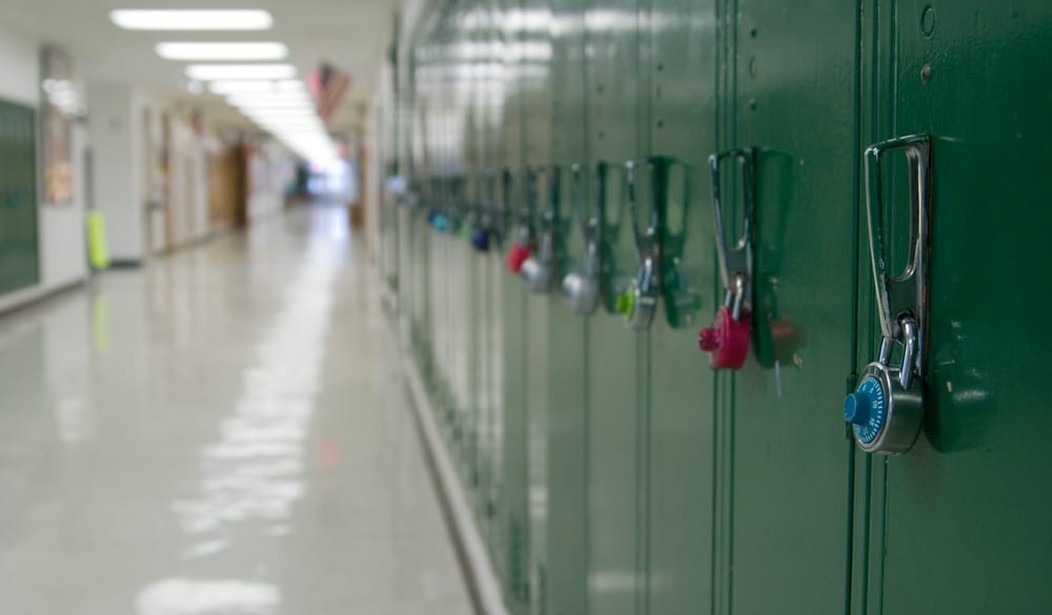Washington, D.C., is broken in more ways than one. Among its litany of failures and absurdities, our nation’s capital is graduating high school students who rarely go to class.
Last year, every graduating senior from D.C.’s Ballou High School was accepted into college. All 164 of them. This was notable because Ballou High School has historically had a very low graduation rate and has seen the majority of its students academically underachieve.
The national media was quick to praise Ballou High School’s success. To their credit, NPR, which initially praised the school, dug a little deeper and uncovered the truth.
The investigation revealed that “Ballou High School’s administration graduated dozens of students despite high rates of unexcused absences…. Half of the graduates missed more than three months of school last year, unexcused.”
After NPR (in conjunction with WAMU) blew the lid on Ballou High School’s academic fraud, the e(OSSE) began conducting an internal investigation. The report was released yesterday and reveals that the problem extends beyond just one high school and across the entire D.C. public school system.
The report’s Executive Summary states the OSSE’s objective: “On December 1, 2017, Mayor Muriel Bowser directed the Office of the State Superintendent of Education (OSSE) to conduct an analysis of student-level attendance and graduation outcomes at public high schools in the District of Columbia,” the report explained. “Under this directive, OSSE has undertaken the following actions: review District of Columbia Public Schools (DCPS) graduation policies and practices, including a school-specific investigation of Ballou Senior High School (Ballou SHS); conduct a citywide analysis of student attendance and graduation outcomes for all District of Columbia (DC) high schools; and review DC Public Charter School Board (PCSB) oversight of its charter school graduation policies and procedures.”
The report’s findings are dismal and paint a picture of a failed school system that is more concerned with chasing federal funding than with actually educating students. Looking at the school district as a whole, the report concludes, “There is increasing incidence of students graduating despite missing a large proportion of instructional days at school. Between SY2014-15 and SY2016-17 absenteeism among students in their fourth year of high school rose, and more students with high levels of absenteeism were graduated over that period.”
The detailed breakdown is interesting, and provides further evidence that not all educational models are created equal:
The distribution of absenteeism among graduates and non-graduates varies significantly by sector and school type:
• Charter schools and DCPS selective high schools have lower levels of absenteeism, and lower levels of graduates with high absenteeism.
• DCPS neighborhood schools have very high levels of absenteeism, and an increasing number of extremely-absent students have graduated in recent years.
OSSE took a closer look at Ballou High School, and discovered:
• A pattern of graduating students with extreme numbers of course absences, in contradiction with DCPS policy;
• Incorrect or contradictory guidance from school officials on coding of absences;
• Implementation of grading policies not in compliance with DCPS policy;
• Inappropriate or excessive use of credit recovery for students, including implementation inconsistent with DCPS’s stated policies;
• Pressure from administrators on teachers to provide opportunities to pass; and
• Inadequate training, tools and supports to enable effective implementation of DCPS systems, policies and procedures.
It remains to be seen whether or not Washington, D.C., can solve the growing problem of academic fraud across their school system. Considering that D.C. is committed to a progressive agenda that thinks that it is racist to believe that rewards should be determined by effort and level of productivity, it is highly unlikely that the OSSE will be able to implement change that will actually help.








Join the conversation as a VIP Member